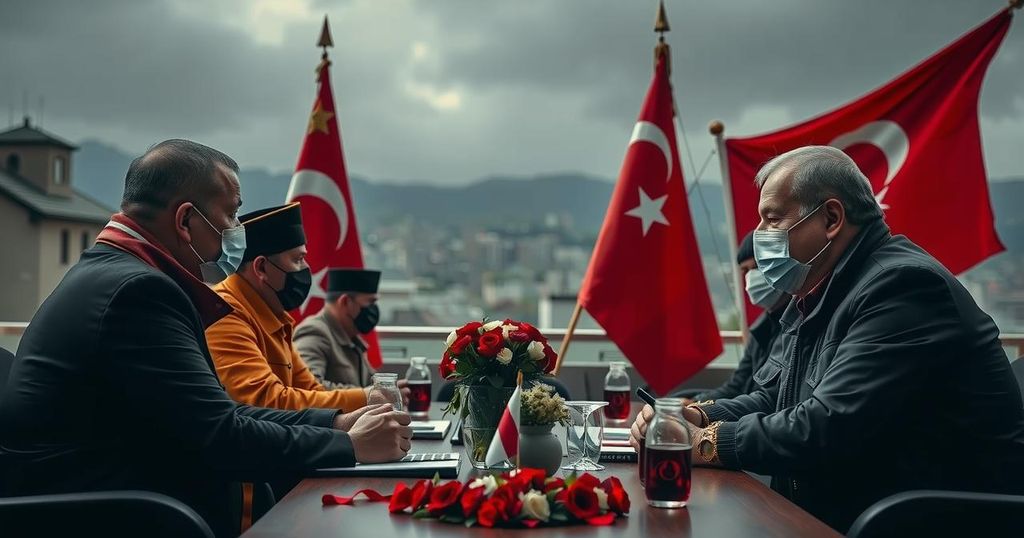Turkey is exploring avenues to engage with the Kurdish community despite a recent deadly attack by the PKK. This shift follows nationalistic gestures from key political figures and is influenced by regional tensions. However, public sentiment remains skeptical, complicating efforts toward reconciliation despite calls for peace from government allies.
Recent developments indicate a potential thaw in relations between Turkey and the Kurdish community despite a violent attack attributed to the Kurdistan Workers’ Party (PKK). This attack, which occurred at a Turkish defense firm last week and resulted in five fatalities and numerous injuries, was linked to ongoing tensions and a surprising shift in discourse from nationalist factions within Turkey’s government. In a notable gesture, Devlet Bahceli, the leader of the Nationalist Movement Party (MHP) and an ally of President Recep Tayyip Erdogan, proposed allowing Abdullah Ocalan, the imprisoned PKK leader, to address the Turkish parliament to renounce violence and advocate for the disbandment of the PKK. Ocalan, who has been detained in solitary confinement since 1999, received a family visit shortly before the attack, which has raised speculations regarding his influence over the Kurdish movement during this critical juncture. Despite the PKK’s claims that the attack had been premeditated and unrelated to political negotiations, the Turkish military responded with airstrikes targeting Kurdish positions in northern Iraq and Syria. This dichotomy illustrates the complexity of the situation as Turkey navigates internal and external pressures that impact its stance towards Kurds. Experts suggest that Turkey’s overtures towards dialogue with Kurdish groups are largely influenced by escalating regional conflicts, particularly concerning Iran, and fears of spillover violence from the ongoing Israel-Hamas war. Observers argue that strengthening ties with Kurdish communities could be essential for Turkey to fortify its domestic stance amid these regional challenges. However, public sentiment in Turkey remains skeptical towards reconciliation efforts with the PKK, complicating the government’s approach.
The PKK has led a prolonged insurgency against the Turkish state since 1984, resulting in significant loss of life and designating it as a terrorist organization by Turkey and its Western allies. Historically, relations between Turkey and the Kurdish population have been fraught with tension and violence, underscored by significant military and political hostilities. Recent geopolitical shifts in the Middle East, including increased military activities involving Israel and Iran, have prompted Turkish authorities to reconsider their engagement strategy with Kurdish groups, particularly in light of potential threats to national security.
Despite the ongoing violence attributed to the PKK, there are emerging signs of a possible rapprochement between Turkey and the Kurdish community, driven by national security concerns and regional developments. The complexity of this situation is underscored by the PKK’s historical legacy, Ocalan’s influential role, and the prevailing public opinion within Turkey. The government’s dual approach of military response alongside diplomatic overtures reflects a strategic balancing act aimed at maintaining stability while addressing long-standing grievances.
Original Source: www.iraqinews.com






